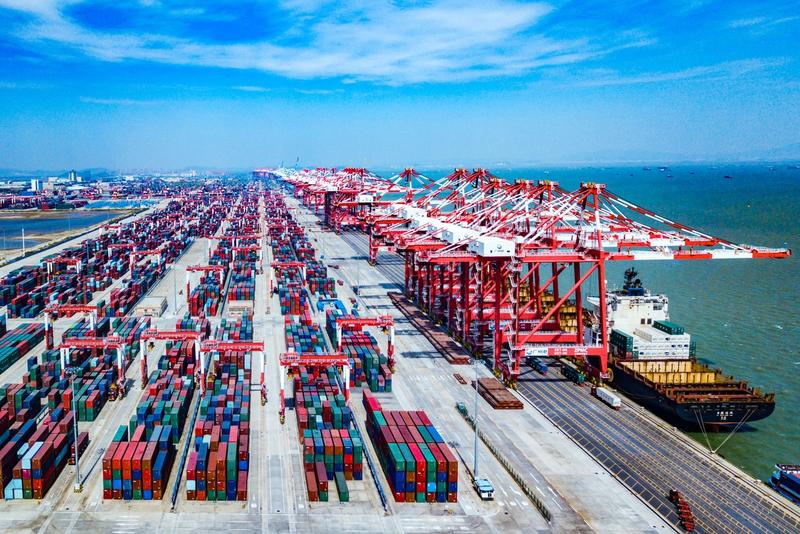FOCUS ON HOT SPOTS
Exploring the Intricacies of Ports: The Heartbeat of Global Trade
Published:
2025-09-23
Dive into the fascinating world of ports, their significance in trade, and how they operate.
The Unsung Heroes of Trade
When you think of bustling cities, you might picture skyscrapers, busy streets, and maybe a famous landmark or two. But have you ever considered the port (port) as the unsung hero behind the scenes? Ports are the gateways to global trade, facilitating the movement of goods and people across the globe. In this article, we'll navigate through the intricate world of ports and explore their pivotal roles in commerce and culture.
What Exactly is a port?
At its core, a port is a location on the coast where ships can dock to load and unload cargo. Think of it as a bustling hub where the land meets the sea. Ports can be found in almost every country and come in various shapes and sizes. From mega ports like Shanghai to quaint fishing harbors, each plays a unique role in the local and global economy.
Types of Ports: A Quick Overview
There are several types of ports, each designed for specific functions:
- Commercial Ports: These are the heavyweights of the port world, handling the majority of cargo shipments.
- Fishing Ports: Essential for the fishing industry, these ports are often smaller but vital for local economies.
- Recreational Ports: Think yacht clubs and marinas; these ports cater to leisure activities.
- Military Ports: These facilities are used by naval forces and are often off-limits to the public.
The Role of Ports in Global Trade
Let's face it, without ports, international trade would hit a brick wall. Ports are critical for importing and exporting goods. They serve as the connective tissue in the supply chain, allowing products to travel from producers to consumers. Ever bought a gadget made in China? Chances are it sailed through a port before reaching your hands. The efficiency of a port can make or break a nation's economy!
A Day in the Life of a Port Worker
Imagine waking up before dawn, the salty breeze kissing your face as you arrive at the port. The hustle and bustle are palpable as cranes tower over the docks, loading containers onto ships. Port workers are the backbone of this operation—loading, unloading, and ensuring everything runs like a well-oiled machine. It's a tough gig, but someone's gotta do it!
Environmental Impacts of Ports
But wait, it's not all smooth sailing. Ports can have significant environmental impacts. From noise and air pollution to potential oil spills, the ecological footprint of a port can be substantial. Fortunately, many ports are becoming more aware of their environmental responsibilities, implementing sustainable practices to mitigate harm.
Innovation at the Dock
In recent years, technology has revolutionized port operations. Automation, AI, and data analytics are making ports more efficient. Automated cranes can load containers faster than any human, while AI helps predict shipping trends. The future of ports is not just about moving goods but doing so in the smartest way possible!
Cultural Significance of Ports
Beyond their economic role, ports also hold cultural significance. They are melting pots of cultures, where diverse communities converge. Many cities have built their identities around their ports, celebrating their maritime history through festivals, museums, and art. From the seafood delicacies of a fishing port to the vibrant nightlife of a commercial harbor, ports enrich our lives in countless ways.
Conclusion: The Port of the Future
As we look to the future, the importance of ports will only grow. With globalization and e-commerce on the rise, ports will continue to be the lifeblood of international trade. So, next time you're enjoying a product that traveled across oceans, spare a thought for the hardworking ports. They truly are the heartbeat of global commerce!








